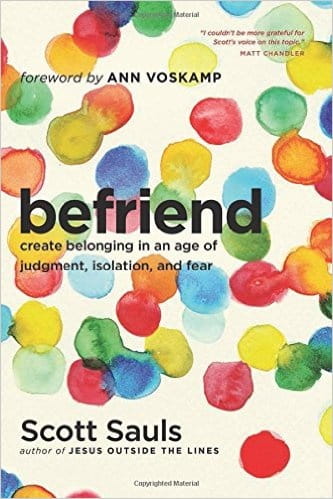When You Feel Damaged and Ashamed

In Scripture, the “crazy and very damaged” people are the ones through whom God did the greatest things. Hannah had bitterness of soul over infertility and a broken domestic situation. Elijah felt so beaten down that he asked God to take his life. Job and Jeremiah cursed the day that they were born. David repeatedly asked his own soul why it was so downcast. Even Jesus, the perfectly divine human, lamented that his soul was overwhelmed with sorrow. He wept when his friend died. Each of these biblical saints was uniquely empowered by God to change the world—not in spite of affliction, but because of it and through it.
Charles Spurgeon, the prince of preachers, was depressed during many of his best ministry years. William Cowper, the great hymn writer, had crippling anxiety for most of his adult life. Artist Vincent van Gogh checked in to an insane asylum and created some of his best paintings there. C. S. Lewis lost his wife to cancer and fell apart emotionally. Joni Eareckson Tada became paralyzed as a teenager and, for a time, became deeply depressed. My dear friend Ann Voskamp has written candidly and often about her own emotional battles and scars. These are the instruments God has chosen to bring truth, beauty, grace, and hope into the world. The best therapists and counselors have themselves been in therapy and counseling. It’s how God works.
If you experience anxiety and depression, I am sharing this part of my story to remind you that there is no shame in having this or any other affliction. In fact, our afflictions may be the key to our fruitfulness as carriers of Jesus’ love. What feels like the scent of death to us may end up becoming the scent of life for others as we learn to comfort others in their affliction with the comfort that we, in our affliction, have received from God. I’ll never forget when Rick Warren eulogized his son Matthew, who from a desperate place took his own life. Rick said that Matthew was proof positive that even broken trees bear fruit. It was not in spite of his affliction, but through his affliction, that Matthew’s life brought gospel hope to many strugglers.
In my darkest hour, in those months of facing into the abyss, there were two people who put themselves on permanent call for me. These two carried me day and night, with constant reminders that though I was down, I was not out. Though I was afraid, I was not alone. Though I had to face some demons, I was surrounded by an angelic presence. Perhaps these two, also, were my guardian angels.
These two were my brother, Matt, and my wife, Patti. Both were outstanding healers because both had suffered with anxiety and depression too.
Afflicted does not mean ineffective
Damaged does not mean done.
Anxiety and depression can also, ironically, be an occasion for hope. After I had been serving about two years as pastor at Christ Presbyterian Church in Nashville, one of our members told me that he thinks I am a really good preacher . . . and that he is entirely unimpressed by this. He told me that the moment he decided to trust me, the moment he decided that I was his pastor, was when I told the whole church that I have struggled with anxiety and depression and that I have seen therapists for many years.
That’s when it dawned on me. My afflictions may end up having greater impact than my preaching or my vision ever will. It is helpful to remember that most of the psalms were written from dark, depressed, wrecked, and restless places.
An Invitation to Rest
Anxiety and depression are also invitations to Sabbath rest. When you are laid flat and there’s nothing you can do except beg for help, Jesus meets you in that place. It is from there that he summons the weary and heavy laden and the wrecked and restless to come to him and learn from him, to see and savor his humility and gentleness of heart . . . that we might find rest for our souls (see Matthew 11:28-30).
For an anxious, depressed person, there is nothing quite like an easy yoke and a light burden under which to process the pain.
Often anxiety and depression have come upon me when I have lost my way. Instead of resting in Jesus, I have sought validation from the crowds, wanting fans instead of friends, wanting to make a name for myself instead of making the name of Jesus famous. This is always a dead-end street, but there are times when my heart still goes there.
Anxiety and depression have been God’s way of reminding me that I don’t have to be awesome. He has not called me to be influential or spoken well of and liked or a celebrity who is famous like a rock star. He has foremost called me to be loved, to be receptive to his love, and to find my rest in his love. He has called me to remember that because of Jesus, I already have a name. I will be remembered and celebrated and sung over even after I am long gone, because he is my God and I am his person. He is my Father and I am his son, and on that day into eternity, there will be no more death, mourning, crying, or pain.
Content taken from Befriend: Create Belonging in an Age of Judgment, Isolateion, and Fear, written by Scott Sauls. ©2016 by Scott Sauls, permission granted by Tyndale.

Click here for a free chapter from my latest book, BeFriend.
Publication date: October 24, 2016
Image courtesy: Thinkstockphotos.com
Originally published October 24, 2016.





